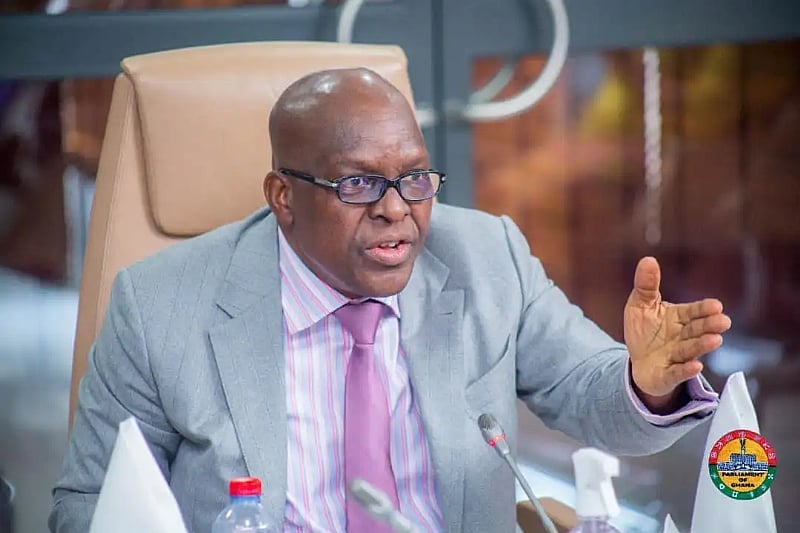The hallowed halls of Ghana’s Parliament, designed as a crucible for reasoned debate and legislative progress, have increasingly become a stage for disruptive partisan clashes and unseemly conduct, prompting Speaker Alban Bagbin to appeal for divine intervention. His plea, voiced at a breakfast prayer meeting, underscores the depth of his concern over the persistent disorder that has marred the institution’s reputation and hampered its effectiveness. Bagbin’s observations paint a troubling picture of a legislative body grappling with deep-seated issues that threaten to undermine its core function. The Speaker’s bewilderment at the stark contrast between the decorum displayed by some MPs in religious settings and their behaviour within Parliament highlights a fundamental disconnect. These MPs, seemingly transformed by the solemnity of their faith in one context, engage in disruptive and often disrespectful conduct in another, raising questions about the sincerity of their commitment to public service and the integrity of the legislative process itself.
Bagbin’s recounting of a recent incident, where chaos erupted in the chamber almost immediately after he handed over proceedings to his second deputy speaker, further illustrates the precarious nature of order within Parliament. The scene he describes – MPs on their feet, singing and shouting – evokes an image of a legislative body teetering on the brink of dysfunction, where reasoned discourse is replaced by raucous displays of partisan fervor. The Speaker’s decision to remain in his office, observing the unfolding pandemonium rather than intervening immediately, speaks volumes about the complexities of his leadership role. He recognized that rushing back into the chamber would not only disrupt the chain of command but also potentially exacerbate the situation. His deliberate choice to observe and reflect underscores his commitment to understanding the root causes of the persistent disorder and finding sustainable solutions.
The Speaker’s remarks shed light on a structural issue within Ghana’s parliamentary system, specifically the role of the Speaker and the potential for bias. He argues that the decision to have a Speaker who is not an elected MP is deliberate, designed to ensure neutrality and prevent the presiding officer’s vote from influencing outcomes. However, the frequent disruptions, even under his leadership, suggest that this structural safeguard alone is insufficient to maintain order. The Speaker’s implication that the deputy speakers, who are elected MPs, might contribute to the disorder through their actions when presiding further complicates the issue. This raises questions about the effectiveness of the existing mechanisms for maintaining impartiality and controlling the behaviour of members within the chamber.
Bagbin’s expression of frustration and his call for divine intervention reflect a growing sense of urgency surrounding the need to restore decorum and functionality to Parliament. He sees the persistent disorder not merely as a political problem but as a moral one, requiring a fundamental shift in the attitudes and behaviour of the MPs. The decision to hold the next annual prayer meeting within Parliament itself is a symbolic gesture, an attempt to imbue the legislative chamber with a sense of sanctity and to remind its members of the higher purpose they are meant to serve. This move underlines the Speaker’s belief that a spiritual awakening is necessary to address the deep-seated issues plaguing the institution.
The recurring disruptions in Ghana’s Parliament, characterized by partisan clashes and unruly behaviour, have reached a critical point, prompting Speaker Alban Bagbin to publicly express his concern and seek divine intervention. His remarks highlight the challenges of maintaining order in a highly charged political environment and underscore the need for a fundamental change in the conduct of MPs. The Speaker’s frustration is palpable, reflecting the growing recognition that the persistent disorder not only undermines the institution’s credibility but also hinders its ability to effectively address the pressing issues facing the nation.
The Speaker’s observations and proposed solutions, including holding a prayer meeting within Parliament, reveal a multifaceted approach to addressing the problem. While acknowledging the structural elements contributing to the disorder, he also emphasizes the importance of individual responsibility and the need for a change in the political culture. The call for divine intervention represents a deeply personal appeal, reflecting the Speaker’s conviction that a spiritual transformation is necessary to restore order and unity within the legislative body. This unusual plea underscores the severity of the situation and the urgent need for a comprehensive solution that addresses both the structural and behavioural aspects of the problem. The future of Ghana’s Parliament hinges on the ability of its members to rise above partisan divisions and embrace a spirit of cooperation and respect, enabling the institution to fulfill its constitutional mandate and serve the best interests of the nation.


